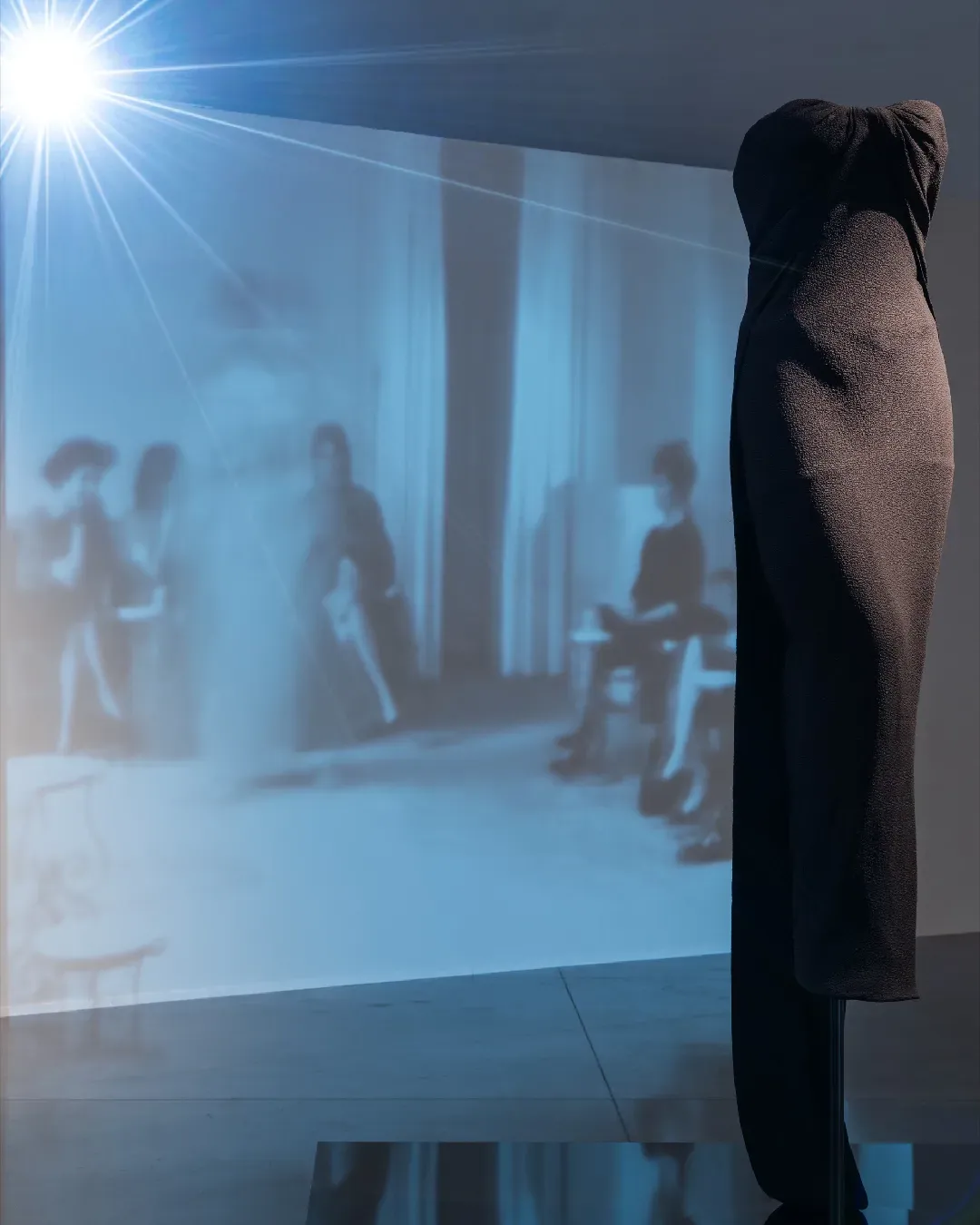
Balenciaga, Demna and the ideology behind the collaboration with "The Simpsons" The nostalgia and symbolism behind the brand's latest show in Paris
When the classic top-down view of Springfield appeared on the screen of the Théâtre de Chatelet, the impression among the audience was that, after the bizarre red carpet show, the moment that Demna had been waiting for months had arrived. For ten minutes to close the show, an original episode of The Simpsons in collaboration with Balenciaga was showed – an operation that had a precedent in Harper Bazaar's editorial called The Simpsons go to Paris with Linda Evangelista. The episode is brilliant and successful, with gags that make fun of the fashion system, from Anna Wintour to Demna himself (who dubbed himself), to the fashion show with many of the most iconic characters of the show wearing the most famous garments created by Demna for the brand. Saturday night's show is clearly the most relevant thing that happened in the return of physical fashion weeks after two years of forced streaming, the operation of The Simpsons in this sense is the classic icing on the cake prepared by Gvasalia who carries out two of the founding elements of his ideology: trolling the world of fashion (although this time it is a sweet criticism almost like when to a repatriation among friends we remember flaws and embarrassing moments), but above all the reworking of the post-Cold War Western culture of which the Simpsons are (for better or for worse and in a very "American" way) the apotheosis.
As she told BoF, Demna has a personal connection to The Simpsons: she's watched the show since she was 10 years old and her husband Loïck Gomez (aka BFRND), has a Tattoo of Homer on his arm. Son of a Russian mother and a Georgian father, Demna experienced firsthand the civil war in Georgia and the break-up of the USSR (there is also a joke in the episode: «It's the saddest thing I've ever heard, and I grew up in the Soviet Union.»). Throughout the 90s and early 2000s, the American shows of the pre-Netflix era played a very relevant cultural role for the new European and Eastern European generations, Demna himself had talked about it in an interview a few years ago: «My generation, born in '89, got to know the world not by walls but through transparent screens».
In a different way, The Simpsons influenced a boy from Tbilisi and one who lived in Paris, creating a common cultural layer for a generation that lived and saw the end of the free market, freedom of movement and the illusion of a globalized culture. The Simpsons among other things had their peak moment when fashion had not yet entered the cultural mainstream, and in fact the references within the show are few: the episode in which Marge reworks the only Chanel dress she could afford to deceive the ladies of the golf club or when the family is in front of Prada Marfa or even when Lisa develops an obsession for 90s fashion.
Although today The Simpsons appear as a cultural and aesthetic reference a bit obsolete, the show still represents a generation and an ideology that today has almost completely faded but has not yet been fully elaborated by society. The fact that today people who grew up in different parts of the world and become a cultural elite find themselves watching an episode of The Simpsons during a Balenciaga show, has something tender and nostalgic. But above all it showed the vision of Demna, who wanted to offer a moment of comfort and unity has a generation that today faces power but that finds itself in a historical and cultural moment completely overturned compared from when The Simpsons was still considered the most irreverent show on TV.
The Simpsons are still in a moment of transition - too young to be considered cult, too old to be able to relaunch - relatively harmless but still relevant to Millennials. This is why Demna used them for his great cultural mindfuck operation brought with Vetements before and Balenciaga now to the sound of memes, products and an ideology that is taking on increasingly culturally pervasive forms. The complexity of Balenciaga lies precisely in its ability to remain plausible whether by doing a collaboration with The Simpsons, or by parading Kim Kardashian with her face covered at the Met Gala or by playing with digital releases in the metaverse. An immersive and profound interpretation of the world that speaks simultaneously and different audiences and overturns the perspective of observation: It’s a Balenciaga world, we just live in it.



























































